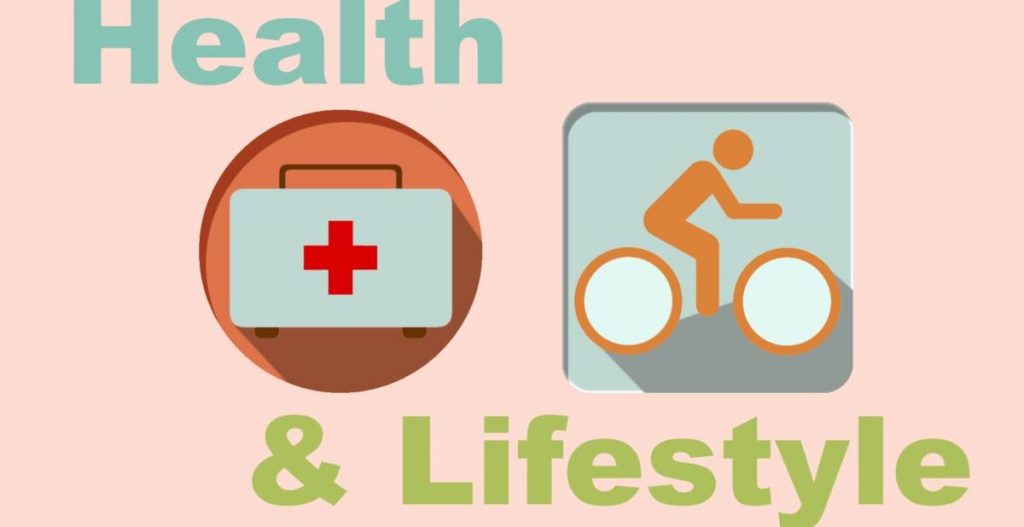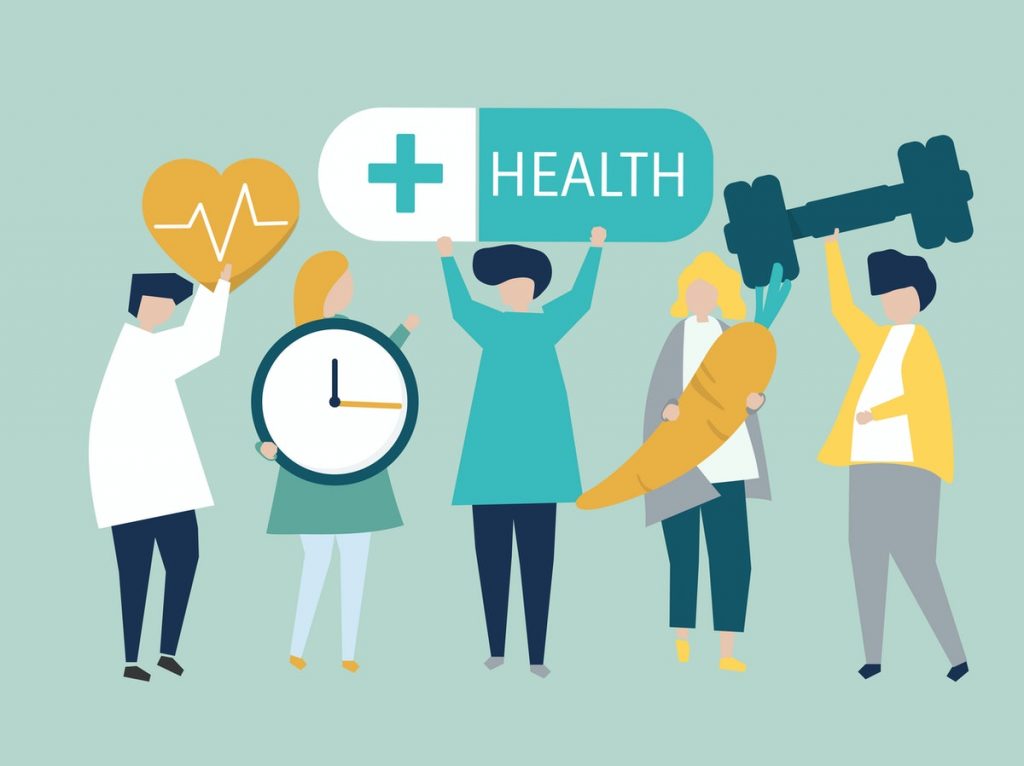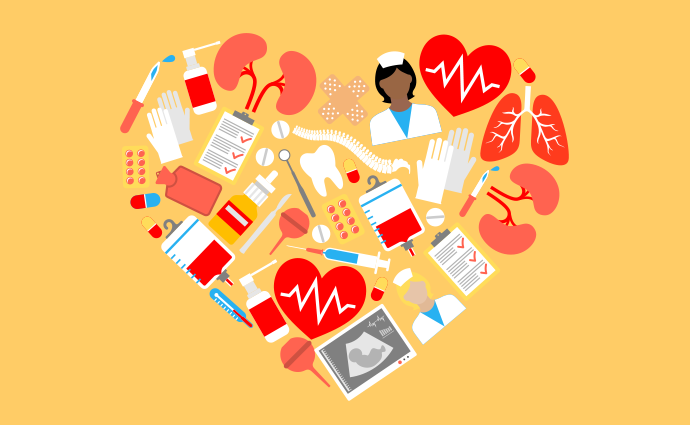Chủ đề Health là một chủ đề từ vựng khá quen thuộc trong bài thi IELTS speaking và writing. Vậy cách dùng các từ vựng chủ đề Health vào các bài thi IELTS như thế nào? Hãy cùng duhoctms.edu.vn tìm hiểu qua bài viết bên dưới nhé!
Nội dung chính:
1. Tổng quan chủ đề Health trong bài thi IELTS
Chủ đề Health không khó bởi ngày nay chúng ta thường quan tâm và chú trọng đến sức khỏe nên những kiến thức căn bản đã có. Vấn đề ở đây chính là nguồn từ vựng lạ xoay quanh chủ đề này như: các loại bệnh, dụng cụ y tế, cách điều trị,… khiến chúng ta khó khăn trong việc học từ vựng.
Do đó các bạn nên tìm hiểu nhiều hơn từ vựng cho chủ đề này nếu muốn đạt band cao, bởi vì những kiến thức chủ đề Health không quá khó, không đòi hỏi sự logic cao.
2. Từ vựng IELTS chủ đề Health
- Health: Sức khỏe
- Health benefits: Lợi ích cho sức khỏe
- Health care: Chăm sóc sức khỏe
- Health education: Giáo dục về sức khỏe
- Health scare: Tình trạng báo động hoặc lo lắng gây ra bởi chẩn đoán mắc một bệnh hoặc tình trạng cụ thể
- Health risk: Nguy cơ gây hại cho sức khỏe
- Mental health: Sức khỏe tinh thần
- Good health: Sức khỏe tốt
- Poor health: Sức khỏe kém
- Public health campaigns: Chiến dịch cộng đồng vì sức khỏe
- Unhealthy: Có hại cho sức khỏe

- Unhealthy lifestyle: Lối sống không lành mạnh
- Healthy foods: Thức ăn có lợi cho sức khỏe
- Healthy lifestyle: Lối sống lành mạnh
- Suffer from various health issues: Mắc các vấn đề về sức khỏe
- Society = Community: Xã hội, cộng đồng
- Make more errors at work: Sai sót nhiều hơn tại sở làm
- Take part in = Participate in = Engage in: Tham gia vào
- Inject something into somebody: Tiêm cái gì đó vào ai đó
- Diagnose somebody with something: Chẩn đoán ai đó mắc bệnh gì đó
- Contract something: Nhiễm (bệnh)
- Follow-up: Các bước khám bệnh sau chẩn đoán
- Deterioration: Sự đi xuống (tệ đi)
- Fatigue: Sự mệt mỏi
- Anxiety disorders: Những sự rối loạn lo âu
- Stroke: Đột quỵ
- Failing health = Poor health: Sức khỏe giảm sút
- Sick leave: Xin nghỉ việc vì bệnh
- Poor work performance: Hiệu suất làm việc kém
- Work Low productivity: Năng suất thấp
- A case in point: Ví dụ điển hình
- Working longer hours = The frequency of long working hours = Extended hours of work: Làm việc nhiều giờ
- Impact = Effect (n): Ảnh hưởng
- Shrivel up: Trở nên gầy ốm
- Ward off: Phòng bệnh
- Pull through: Vượt qua một căn bệnh/chấn thương nặng
- Frequently feel exhausted: Thường xuyên cảm thấy kiệt sức
- Have serious consequences for: Gây ra hậu quả nặng nề cho…
- Busy working schedules: Lịch trình công việc bận rộn
- Take frequent family trips: Thường xuyên đi du lịch với gia đình
- Have meals together: Ăn cùng nhau
- Have a severe impact on…= Have an adverse impact on… = Have a harmful impact on… =Have a negative impact on…: Có ảnh hưởng tiêu cực/có hại lên…
- Devote time to… = Spend time on…: Dành thời gian vào việc gì
- To be unfit: Không khỏe mạnh
- Prevent: Ngăn ngừa
- Family relationships = Family bonds: Mối quan hệ gia đình
- Job satisfaction: Sự hài lòng trong công việc
- A nine-to-five job: Công việc hành chính
- Reduce = Limit = Restrict: Giảm, giới hạn cái gì
- Work productivity: Năng suất làm việc
- Learn various skills and experience: Học được những kỹ năng và kinh nghiệm
- Professional work environment: Môi trường làm việc chuyên nghiệp
- Get a well-paid job: Có được công việc được trả lương tốt
- Sedentary lifestyles: Lối sống thụ động
- Fast food = Junk food: Đồ ăn vặt
- Pre-made food: Thức ăn được chuẩn bị sẵn
- Have a healthy diet = Have a balanced diet: Có chế độ ăn lành mạnh, cân bằng
- Excessive consumption of…: Việc tiêu thụ quá mức…
- Have an unhealthy diet = Have an imbalanced diet: Có chế độ ăn không lành mạnh, không cân bằng
- Weight problems: Các vấn đề về cân nặng
- Eating Disorder: Rối loạn ăn uống
- Nutrients: Chất dinh dưỡng
- Overeating: Ăn quá nhiều, nhiều hơn nhu cầu cơ thể
- Ingredients: Nguyên liệu nấu ăn
- Allergy: Dị ứng
- Additive: Gia vị hoặc chất bảo quản
- Obese(adj): Béo phì
- Obesity (n): Sự béo phì
- Child obesity = Childhood obesity = Obesity among children: Béo phì ở trẻ em
- Take regular exercise: Tập thể dục thường xuyên
- Disseminate information: Phổ biến thông tin
- Rapid weight gain: Sự tăng cân nhanh chóng
- Physical activity: Hoạt động thể chất
- Make healthier food choices: Lựa chọn thực phẩm lành mạnh hơn
- School education programmes: Chương trình giáo dục của trường học
- Home-cooked food: Thức ăn được nấu tại nhà
- Come around: Tỉnh lại (sau khi ngất)
- To be at a higher risk of heart diseases: Tỷ lệ cao mắc phải bệnh tim
- The prevalence of fast food and processed food: Việc thịnh hành của thức ăn nhanh và các thức ăn được chế biến sẵn
- Raise public awareness: Nâng cao ý thức cộng đồng
- Average life expectancy: Tuổi thọ trung bình
- Treatment costs: Chi phí chữa trị
- Exercise: Tập thể dục
- To be fit: Dáng vóc cân đối
- Sleeping habits: Thói quen ngủ
- To lack sleep: Sự thiếu ngủ
- Organic food: Thực phẩm hữu cơ
- Balanced diet: Chế độ ăn uống cân bằng, điều độ
- Disseminate information: Phổ biến thông tin
- Initiative: Sáng kiến, kiến nghị
- Lifestyle related diseases: Các loại bệnh tật liên quan đến/hình thành do lối sống
- To implement policies: Áp dụng chính sách
- To encourage: Khuyến khích
- To be conscious: Có ý thức về vấn đề gì đó
- Pursue a career: Theo đuổi sự nghiệp
- To avoid evils: Tránh thói quen xấu
- Intense workout: Tập luyện cường độ cao
- To stay active: Duy trì hoạt động thường xuyên
- To hit the gym: Đến phòng tập
- To lose weight: Giảm cân
- Overworked people: Những người làm việc quá nhiều
- Earn a high salary: Có được mức lương cao
- To hold yourself accountable: Chấp nhận việc bản thân cần phải chịu trách cho thứ gì đó
- Prescription: Đơn thuốc
- To cough: Ho
- Fever: Sốt
- Sore throat: Đau họng

- Runny nose: Sổ mũi
- Discipline: Kỷ luật
- To avoid vices: Tránh thói quen xấu
- Disease prevention: Phòng chống bệnh tật
- Try to eat more vegetables and fruit: Cố gắng ăn nhiều rau củ quả và trái cây
- To limit sugar intake: Hạn chế lượng đường nạp vào (cơ thể)
- Early diagnosis: Chẩn đoán sớm
- Treatment: Điều trị
- Epidemic: Dịch bệnh
- Disorder: Rối loạn
- Addiction: Nghiện
- Nutrients: Chất dinh dưỡng
- Make a full recovery: Bình phục hoàn toàn
- Side effects: Tác dụng phụ
- To be conscious: Có ý thức về vấn đề gì đó
- Infection: Lây nhiễm
- Adverse reaction: Phản ứng ngược
- Consult the doctor: Hỏi ý kiến bác sĩ
- Overweight: Mập
- Obesity: Bệnh béo phì
- Variety: Tính đa dạng
- Appetite: Thèm ăn, khẩu vị
- Fibre: Chất xơ
- Mental illness: Bệnh tâm lý
- Diabetes: Bệnh tiểu đường
- Deteriorate: Trở nên xấu đi
- To alleviate (the) pain/symptoms: Giảm đau, giảm triệu chứng
- Prevent: Ngăn ngừa
- To reduce one’s stress levels: Giảm bớt mức độ căng thẳng
- To build up resistance to disease: Tăng cường sức đề kháng, chống lại bệnh tật
- To go on a diet: Tiến hành chế độ ăn kiêng
- Medical cost: Chi phí y tế
- Injure somebody: Làm chấn thương ai đó
- Regular: Thông thường
- Cope with something: Chịu đựng điều gì đó
- Hurt somebody: Làm đau ai đó
- Lead to something: Dẫn tới điều gì đó
- Significant taxing of fast food: Đánh thuế nặng lên thức ăn nhanh
- Suffer from various health issues: Mắc hàng loạt các vấn đề về sức khỏe
- Addicted to something: Nghiện cái gì đó
- Operate on somebody: Phẫu thuật cho ai đó
- Suffer from something: Chịu đựng (một cách đau đớn) với điều gì đó
- Have an effect on somebody/something: Có tác động đến
- Fall ill: Ốm
- Take medicine: Uống thuốc
- Make somebody sick: Làm ai đó ốm
- Call in sick: Xin nghỉ do ốm
- Consequence: Hậu quả
- Operation/Surgery: Cuộc phẫu thuật
- Therapy: Liệu pháp trị liệu
- Appointment: Cuộc hẹn với bác sĩ
- Prescribed medicine: Thuốc kê đơn
- Infection: Sự lây nhiễm
- Side effect: Tác dụng phụ
- Poisonous: Có tính độc
- Beneficial: Có lợi
- Addictive: Có tính gây nghiện
- Black out: Ngất đi
- Come out in: Nổi nốt trên cơ thể
- Hazardous: Có hại lên con ngườI
- Bring on: Gây ra (bệnh)
- Pass away: Mất (cách nói trang trọng)
- Get over: Vượt qua một biến cố nào đó
- Look after: Chăm sóc ai đó
- Vegetarian food: Đồ ăn chay
- Processed food: Thực phẩm đóng hộp
- Health-conscious: Có ý thức về sức khỏe
- Health benefit: Tác động tích cực đến sức khỏe của một người có được từ thực phẩm, hoạt động, điều trị y tế hoặc trị liệu
- To look after your health= To take care of your health: Chăm sóc sức khỏe
- To regain your health: Phục hồi sau chấn thương hoặc bệnh tật
- Regular exercise: Tập thể dục thường xuyên
- In good shape: Có một thân hình đẹp
- Stay in shape: Giữ được sức khỏe và thân hình khỏe mạnh
- Out of shape: Không trong trạng thái tập luyện
- Engage in sports: Tham gia hoạt động thể thao
- Get back into shape : Quay trở lại tập luyện
- Work out: Tập luyện
- Banning of smoking: Cấm hút thuốc
- Initiative: Sáng kiến, kiến nghị
- To implement policies: Áp dụng chính sách
3. Những câu hỏi thường gặp trong chủ đề Health
3.1. Câu hỏi
- In what ways do you try to stay healthy?
- Do you tend to get sick often?

- Are you careful about what you eat?
- How important is a healthy lifestyle for you?
- Do you think you are healthy?
- Do you think more about your health now than when you were younger
- When was the last time you went for a check-up at the hospital?
- Did you have any problems?
- Do you think people start worrying more about their health as they become older?
- Why is obesity such a big problem today?
- Do you eat much junk food?
- What are the most popular ways of keeping healthy in your country?
- What is the role of the government in promoting healthcare?
- What are the health benefits of playing a sport?
- What more do you think could be done to promote healthy living in your country?
- Do you have any unhealthy habits?
- In your opinion, what is more important, eating healthy food or doing exercises?
- How can people be encouraged to stay healthy?
- What do you do to stay healthy?
- What is the best way of helping people with an addiction?
- Is it important to you to eat healthy food?
3.2. Câu trả lời gợi ý
In what ways do you try to stay healthy?
Being a health-conscious person, I try to improve my state of health by combine regular exercise with a balanced diet. To be more specific, I reduce my meat intake and eat fresh fruit and vegetables which contain plenty of fiber as well as vitamins. In addition, I generally have a medical check-up with my doctor every 6 month to help find potential health issues before they become a problem.
What are the health benefits of playing a sport?
I think playing sports benefit us both physically and mentally. Playing sports helps control weight, combat health conditions and boost energy, Besides, scientists suggest that physical activities stimulate various brain chemicals that may leave you feeling happier and more relaxed.
Do you think people pay attention to their health enough these days?
In my point of view, the answer is no. Most people nowadays tend to lead a sedentary lifestyle and not attach much importance on their diet. As as life is more and more hectic, most people are occupied with their jobs and find it difficult to prepare daily meals. They tend to resort to fast food like pizza or hamburger which are high in cholesterol and do not have any nutrients at all. Since the appearance of smartphone and social media, plenty of people spend a great deal of time surfing the Internet or browsing their news feeds and rarely do physical exercise. That’s the reason why the proportion of overweight people is increasing.
4. Bài mẫu IELTS chủ đề Health
Bài mẫu 1
“Nowadays, the number of obese children is increasing at an alarming rate. What are some of the causes of this increase and how can the problem be solved?”
The number of children who are suffering from obesity can be said to have reached epidemic proportions. So, what are the factors behind this obesity epidemic, and how can it be brought under control. This essay will attempt to answer these pressing questions.
Firstly, it seems that a significant amount of blame can be given to poor diet combined with the marketing of unhealthy food toward young people. Children’s diets often consist of junk food, such as potato chips and candy, which is not only low in nutrients but also high in calories. This dietary issue is also compounded by the fact that these kinds of food are often marketed directly at children with fun cartoon mascots and bright colours that are designed to attract children’s attention.
Another undeniable reason is sedentary lifestyle. Children in the modern world tend to lead lives that are shockingly inactive compared to their predecessors. Much of their time is spent sitting in front of a screen, whether it be television, a computer, or a smartphone. In fact, studies have shown that children in urban environments tend to get only two hours of exercise per week compared to two hours per day just a generation ago.
Nevertheless, through concerted action by parents and governments, this worrying situation can be alleviated. In terms of diet, parents need to play a greater role in controlling what their children eat. For the government’s part, they can introduce legislation restricting the promotion of unhealthy food to children. Similarly, parents need to make a greater effort to ensure their children are getting sufficient exercise on a daily basis, while the government can launch some kind of ‘stay active’ health campaigns.
Overall, the rise in the number of obese children is certainly worrying, especially and kids are a vulnerable part of the population. However, by taking some simple practical steps, we can help to make sure that the next generation grows up healthy and strong.
Bài mẫu 2
It is argued that providing more sports centres or health clubs would be the most effective method for improving public health. From my point of view, however, proper health education would be a better measure.

On one hand, people’s health has been greatly enhanced thanks to participation in sports facilities. It is an undeniable fact that fitness levels are increased by taking part in physical activities such as doing daily exercise or playing sports. Therefore, the increasing popularity of gym classes or sports clubs gives people more chances to improve their health. After a hard day at work, many residents in my neighbourhood attend evening yoga classes in order to keep fit and stay healthy.
On the other hand, I would argue that increasing the provision of sports amenities would have little impact on public health. This can be explained by the fact that many people who paid for an annual gym membership failed to go entirely after just one month. Therefore, I think that it is more important to educate citizens about basic health awareness. A person would easily avoid some potential health problems if he is equipped with sufficient basic knowledge about medicine and health care. For example, when a child knows more about the adverse effects of smoking, he might be less likely to take up this bad habit in his adulthood. Public campaigns and health protection programmes, thus, should be promoted so that people know how to protect their health effectively.
In conclusion, the growing prevalence of sports facilities has brought a wide range of health benefits for people; yet, I personally believe that raising public awareness through health campaigns would have a more positive impact on improving people’s health.
Bài mẫu 3
Đề bài: Many people believe that every individual is responsible for his/her own healthy lifestyle. Others believe that governments should take care of it. Discuss both these views and give your own opinion.
There has been much recent policy advocacy related to what the proper role of governments in healthcare should be. Although I believe governments have begun to treat this issue with the seriousness it merits, the responsibility for taking care of one’s health should ultimately rest with individuals as they are more likely to stick with habits that they themselves have cultivated.
Those who favour strong governmental intervention often point out the role of the state in forming healthy eating habits through early intervention at public schools. In the United States, the vast majority of students attend state schools and in recent years the government has been implementing new policies aimed at curbing addiction to unhealthy foods. This means that they have reduced the total intake of saturated fats in school lunches and drastically cut down on sugar not only in prepared lunches but also in the ubiquitous vending machines placed around most schools. In the short term this has led to improved health for students but its true effect will be over the next several decades when these children grow up and are more likely to eschew fast food for the healthier alternatives now opening up to meet the growing demands of an increasingly health-conscious nation.
While there are clear benefits to governmental action, individuals are better at regulating their own behaviour in the long-term. People have always found ways to get around rules in order to satisfy their most basic desires, including those related to food. No matter what steps governments take, people will always crave unhealthy, delicious foods as our brains are hardwired to feel pleasure from saturated fats, carbohydrates, and sugar. For example, even a country like France, which has imposed strict rules over the food that children are served, is still facing an obesity crisis. Therefore the only way for people to consistently combat unhealthy lifestyle is to develop the discipline on their own. Individuals who make the choice to eat healthier are more likely to stick with this habit having worked out the reasons for themselves, rather than simply following a rule imposed by their schools at the behest of the government.
In conclusion, governments have a large role to play in public health but only individuals can take control of their own lives and make decisions that will truly benefit them in the future. In this case, the best solution is simply no solution. Standing back and allowing people to become more self-reliant will not only have more long-lasting effects but will also empower individuals in various other areas of their life to be more responsible.
Hi vọng gợi ý về từ vựng IELTS về chủ đề Health ở phía trên đây sẽ giúp các bạn có thêm vốn từ vựng và ứng dụng thành công vào kỳ thi IELTS của mình. Duhoctms.edu.vn chúc các bạn luyện tập chăm chỉ và may mắn trong kỳ thi sắp tới!


Bình luận